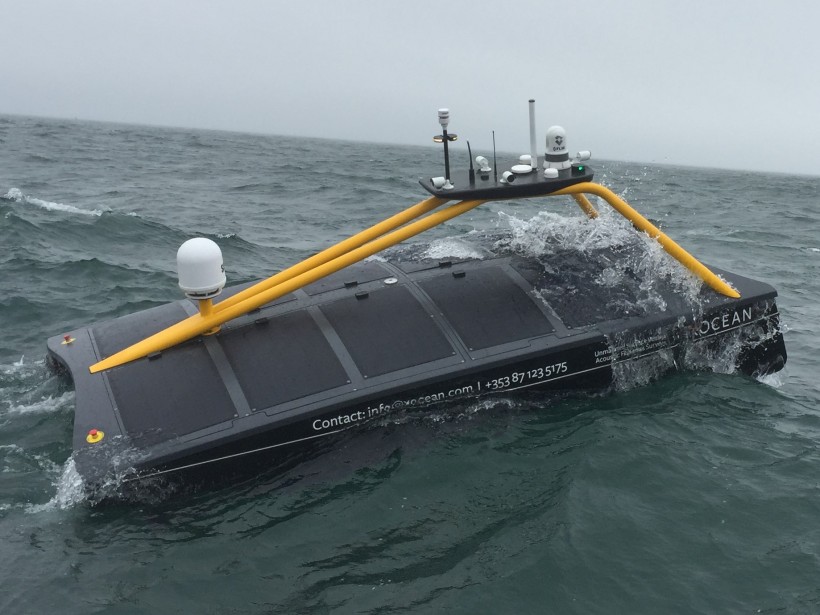Further ramping up its activity, Canada’s Ocean Supercluster on Thursday announced it is backing four more projects that aim to grow Canada’s marine economy, benefit the environment and encourage diversity.
The oceantech initiative backed by the federal government said the four projects will be worth a total of $12.2 million, with the Supercluster contributing almost $6 million in funding. The remaining money will come from the partners in each project. The announcements follow on the unveiling last week of three Ocean Supercluster projects with a total value of $6.6 million.
The Ocean Supercluster is one of five Canadian innovation “superclusters”, which the federal government set up in 2018 to create international centres of excellence in specific technologies. They took a year or two to set up their organizations and get their operations going, and are now announcing R&D projects that bring together government, business and academia.
“To date, Canada’s Ocean Supercluster has $200 million in total project commitments, more than 42 projects approved (of which 36 have been approved since March 2020),” said Vice-President of Government Relations and Communications Nancy Andrews in an email. “We look forward to continuing to roll more of these projects out.”
The four latest projects are:
The Smart Protective Coatings Project
Lead: Graphite Innovation and Technologies, or GIT, of Dartmouth.
Value: $4.6 million.
OSC contribution: $2.2 million.
Other participants: Horizon Maritime Services, of St. John’s, and the national R&D organization Mitacs.
The project aims to increase the use of GIT’s graphene-based protective coating products on nautical vessels. GIT’s non-toxic coatings reduce fuel consumption and underwater radiant noise. Lloyd’s Register, a global professional services organization with more than 260 years of experience in engineering and technology solutions, will provide independent assessments on the applications.
“We are working on technology that will not only advance green technologies used in the ocean but also protect Canada’s marine ecosystem for years to come,” said GIT Chief Executive Mo AlGermozi in a statement.
The Vitality Project
Lead: Pisces Research Project Management, Halifax.
Value: $3.8 million.
OSC contribution: $1.5 million.
Other participants: Dalhousie University, Perennia Food and Agriculture Inc., Fundy Ocean Research Centre for Energy, University of Victoria, St. Lawrence Global Observatory, Tula Foundation and The Hakai Institute, Marine Renewables Canada, and COINAtlantic.
The project will work with data produced by the Canadian Integrated Ocean Observing System and apply it to three emerging sectors: aquaculture, tidal power, and offshore wind.
This initiative aims to develop new low-cost data streams as well as software and tools to work with that data. It will also produce new training programs to address skill gaps, creating 10 new jobs and educating 100 trainees.
“If we truly want to advance Canada’s ocean leadership and take advantage of our vast ocean resources and talent, we need to work together to create and share ocean data tools, skills and infrastructure,” said Pisces CEO Kes Morton. “Vitality, leveraging the Canadian Integrated Ocean Observing System, is a perfectly timed opportunity to do just that.”
XO-G2 Project
Lead: Xocean, an Irish company with operations in the Halifax area
Value: $3.4 million
OSC contribution: $2 million
Other participants: ABCO Industries, DMR Boat Design, Ocean Floor Geophysics, and Fisheries and Oceans Canada
This project aims to develop the next generation of Uncrewed Surface Vessels, or USVs, which can operate over the horizon with a range of over 3,000 nautical miles without a support vessel. Xocean specializes in such autonomous vehicles, and using them to gather ocean data at lower costs,risks and environmental footprint than existing methods.
“The support from the OSC is coming at the perfect time in our accelerated growth trajectory,” said Xocean COO Sarah MacDonald. “The resiliency and flexibility of our business model continues to be proven across the globe throughout the COVID-19 pandemic as companies working offshore seek out safer, more cost-effective ways to operate with lesser impact on climate.”
Ocean Allies
Lead: Pisces Research Project Management.
Value: $420,000.
OSC contribution: $250,000.
Other participants: Upswing Solutions, Huntsman Marine Science Centre, Assembly of First Nations, BioNB, Centre for Ocean Ventures and Entrepreneurship (COVE), Irving Shipbuilding, Nova Scotia Business Inc, Ocean Technology Council of Nova Scotia, Ocean Frontier Institute, OceansAdvance, PanGeo Subsea, Synapse, Mitacs, and Ulnooweg.
The Ocean Allies project aims to promote diversification in the ocean sector through training, changing systems and improving access for people.
“Only when we remove barriers, build capabilities and connections, and create opportunities will we truly be on the path to realizing our full potential in ocean innovation,” said Supercluster CEO Kendra MacDonald.








